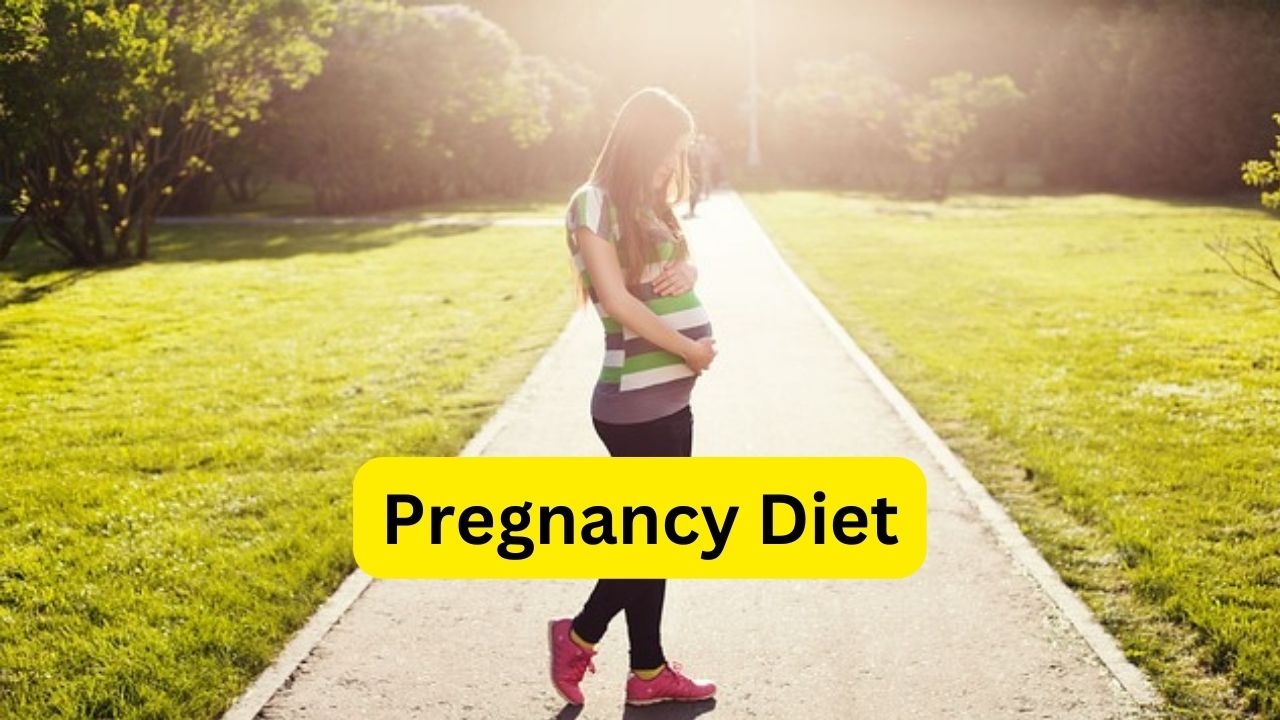Pregnancy Diet-A nutritious pregnancy diet can help you meet the needs of both yourself and your growing fetus. Here are 5 must have foods for a nutritious pregnancy diet.
Pregnancy is an exciting time, but it can also be a bit overwhelming when it comes to making sure you’re getting the proper nutrition for both you and your baby. Eating a balanced diet is crucial during pregnancy, but there are certain foods that are especially beneficial.
In this blog post, we’ll discuss five must-have foods for a nutritious pregnancy diet. We’ll explore the benefits of each food and provide tips on how to incorporate them into your meals. From leafy greens to lean protein sources, these foods will help ensure that you and your growing baby are getting all the nutrients you need. So if you’re expecting or planning to become pregnant, keep reading to learn more about these essential foods for a healthy pregnancy diet..
Sweet potatoes
Sweet potatoes are a must-have food for a nutritious pregnancy diet. Not only are they delicious, but they are also packed with fiber, vitamins A and C, and potassium. These nutrients are essential for a healthy pregnancy and can help support fetal development. Additionally, sweet potatoes have a low glycemic index, which means they can help regulate blood sugar levels and prevent gestational diabetes.
Healthy Foods to Help You Lose Belly Fat Naturally
Whether mashed, roasted, or baked, there are many ways to incorporate sweet potatoes into your pregnancy diet. So go ahead and indulge in this sweet treat while reaping the benefits of its nutritional value.
Salmon
Salmon is a must-have food for any pregnant woman’s diet. It is an excellent source of omega-3 fatty acids, which are essential for the development of the baby’s brain and eyes. In addition to being high in protein, salmon also contains important nutrients such as vitamin D and selenium. When choosing salmon, it is important to opt for wild-caught varieties over farmed ones, as they tend to have lower levels of pollutants.
Salmon can be enjoyed in a variety of ways, including grilled, baked, or pan-seared. Whether you’re a fan of sushi rolls or prefer your salmon cooked, incorporating this nutritious fish into your pregnancy diet is a great way to support your baby’s growth and development.
Eggs
Eggs are a great addition to any pregnant woman’s diet. They are an excellent source of protein, which is essential for the growth and development of the baby. In addition, eggs contain choline, a nutrient that helps with brain development and can reduce the risk of neural tube defects. Eggs are also high in vitamin D, which is important for bone health and immune function. Plus, they are versatile and can be prepared in a variety of ways, making them an easy and convenient choice for busy moms-to-be. Just be sure to cook your eggs thoroughly to avoid any risk of salmonella contamination.
Smart Way to Gain Weight: A Guide to Healthy Eating
Eggs are a great addition to a nutritious pregnancy diet. They are an excellent source of protein, which is essential for fetal development and can help keep you feeling full throughout the day. Additionally, eggs contain choline, which is important for brain and nervous system development in the baby. It is recommended that pregnant women consume at least 400mg of choline per day, and one large egg contains approximately 147mg. Eggs are also a good source of vitamins D and B12, both of which are important for bone health and can help prevent birth defects. Whether scrambled, boiled, or baked into a quiche, eggs are an easy and versatile way to add nutrition to your pregnancy diet.
Berries
Berries are an excellent addition to a nutritious pregnancy diet. Not only are they delicious, but they are also packed with essential nutrients that can benefit both mom and baby. Berries are rich in antioxidants and vitamin C, which can help boost the immune system and reduce the risk of infections during pregnancy. They also contain fiber, which can help with digestion and prevent constipation, a common issue during pregnancy.
🔥🔥Click here to follow US IT BARI-All about Healthy Foods site in Google News🔥🔥
Additionally, berries are low in calories and high in water content, making them a great snack option for those looking to maintain a healthy weight during pregnancy. So whether you prefer strawberries, blueberries, raspberries or blackberries, be sure to include some berries in your daily diet for a healthy and nutritious pregnancy.
Avocados
Avocados are a must-have food for any pregnant woman looking to maintain a nutritious diet. Not only are they delicious, but they are also packed with essential nutrients like folate, potassium, and healthy fats. Folate is particularly important during pregnancy, as it helps to prevent birth defects and promotes healthy fetal development.
Additionally, avocados can help to regulate blood sugar levels and reduce inflammation in the body. Whether you enjoy them on toast, in a salad, or blended into a smoothie, adding avocados to your pregnancy diet is a great way to support your health and the health of your growing baby.
FAQ
What are five food to eat during pregnancy?
During pregnancy, it is important to maintain a healthy and balanced diet to support your own health and the development of your baby. Here are five nutrient-rich foods that are beneficial during pregnancy:
- Leafy greens: Leafy greens like spinach, kale, and broccoli are excellent sources of essential nutrients such as folate, iron, and calcium. They also provide fiber, which aids digestion and helps prevent constipation.
- Legumes: Legumes, including lentils, beans, chickpeas, and peas, are packed with protein, fiber, iron, and folate. They are also low in fat and a good source of complex carbohydrates. Legumes are versatile and can be added to various dishes like soups, salads, or stews.
- Whole grains: Opt for whole grains like quinoa, brown rice, oats, and whole wheat bread, which provide important nutrients such as fiber, B vitamins, and minerals. They help regulate digestion and maintain steady blood sugar levels.
- Lean proteins: Include lean sources of protein in your diet, such as poultry, fish, tofu, eggs, and legumes. Protein is crucial for the growth and development of the baby. Fish, like salmon, is also rich in omega-3 fatty acids, which support brain and eye development.
- Dairy products: Milk, yogurt, and cheese are excellent sources of calcium, protein, and other essential nutrients. Calcium is vital for the development of the baby’s bones and teeth. If you are lactose intolerant or have dietary restrictions, you can choose alternatives like fortified plant-based milk.
Remember to consult with your healthcare provider or a registered dietitian for personalized dietary recommendations based on your specific needs and any potential allergies or medical conditions.
What are the most nutritious foods to eat while pregnant?
During pregnancy, it’s essential to consume a well-balanced and nutrient-dense diet to support both your health and the development of your baby. Here are some of the most nutritious foods to include in your diet while pregnant:
- Fruits and vegetables: These are rich in vitamins, minerals, fiber, and antioxidants. Aim for a variety of colorful options like leafy greens, berries, citrus fruits, sweet potatoes, and bell peppers.
- Legumes: Legumes such as lentils, chickpeas, black beans, and peas are excellent sources of protein, fiber, iron, and folate.
- Whole grains: Choose whole grain options like whole wheat bread, brown rice, quinoa, and oats. They provide complex carbohydrates, fiber, B vitamins, and minerals.
- Lean proteins: Include lean sources of protein like poultry, fish, lean meats, tofu, and legumes. These provide essential amino acids for fetal development.
- Dairy products: Milk, yogurt, and cheese are rich in calcium, protein, and vitamin D. Opt for low-fat or fat-free options, if possible, and consider fortified plant-based alternatives if you’re lactose intolerant.
- Eggs: They are packed with protein, choline, and essential vitamins and minerals. Ensure they are thoroughly cooked to reduce the risk of foodborne illness.
- Fish and seafood: These provide omega-3 fatty acids, which are important for brain and eye development. However, some fish can contain high levels of mercury, so choose low-mercury options like salmon, trout, and sardines.
- Nuts and seeds: Almonds, walnuts, chia seeds, and flaxseeds are excellent sources of healthy fats, fiber, and important nutrients like vitamin E and omega-3 fatty acids.
- Avocados: They are rich in healthy fats, fiber, potassium, and vitamin K. They also provide folate, which is crucial for the early stages of pregnancy.
- Water: Staying hydrated is vital during pregnancy. Aim for at least eight glasses of water per day and more if you’re active or in a hot climate.
Remember, it’s important to consult with your healthcare provider or a registered dietitian for personalized advice based on your specific needs and any dietary restrictions you may have.
What are 5 tips to eating healthy while pregnant?
Eating healthy during pregnancy is crucial for the well-being of both the mother and the developing baby. Here are five tips to help you maintain a nutritious diet while pregnant:
- Eat a balanced diet: Focus on consuming a variety of nutrient-dense foods to meet the increased nutritional demands of pregnancy. Include fruits, vegetables, whole grains, lean proteins, and healthy fats in your meals. Aim to have a colorful plate with a mix of different food groups.
- Increase your nutrient intake: Certain nutrients are particularly important during pregnancy. Make sure to include foods rich in folate, iron, calcium, omega-3 fatty acids, and vitamins such as vitamin C, vitamin D, and vitamin A. Consult with your healthcare provider or a registered dietitian for personalized recommendations.
- Stay hydrated: Drinking an adequate amount of water is essential during pregnancy. It helps maintain the amniotic fluid, supports digestion, prevents constipation, and aids in overall cellular function. Aim for at least eight to ten glasses of water per day, and more if you’re physically active or in a hot climate.
- Control portion sizes: Pregnancy can bring about changes in appetite, and it’s important to pay attention to portion sizes. Eating smaller, frequent meals throughout the day can help prevent excessive hunger and manage blood sugar levels. Listen to your body’s hunger and fullness cues, and avoid overeating.
- Avoid certain foods: During pregnancy, it’s important to steer clear of certain foods that can pose a risk of foodborne illnesses or harm to the developing baby. These include raw or undercooked meats, fish high in mercury (such as shark, swordfish, and mackerel), unpasteurized dairy products, raw eggs or foods containing raw eggs, and certain types of seafood. Also, limit your caffeine intake and avoid alcohol and smoking altogether.
Remember, each pregnancy is unique, and it’s essential to consult with your healthcare provider or a registered dietitian for personalized advice based on your specific needs and any existing health conditions you may have.
Bottom Line
Maintaining a healthy pregnancy diet is essential for the health of both mother and baby. By incorporating nutrient-dense foods into your meals, you can ensure that you are providing your body with the vitamins and minerals it needs to support a healthy pregnancy. Some must-have foods to include in your diet are leafy greens, fruits high in vitamin C, lean protein sources, whole grains, and dairy products. These foods provide a range of vital nutrients that can promote healthy fetal development and support maternal health throughout pregnancy.
If you’re looking to prioritize your nutrition during pregnancy, be sure to incorporate these five must-have foods into your meal plan for optimal health outcomes.
Related Post
Health Benefits of Eating Strawberries
Health Benefits of Blueberries
Health Benefits of Avocados
Orange Health Benefits
Eat More Apples For Better Health and Weight Loss
Heart Healthy Meal Plans
10 Best milk for newborn 2023

All About Healthy Foods Content Writer With SEO Expert
 Ask us any question!
Ask us any question!

